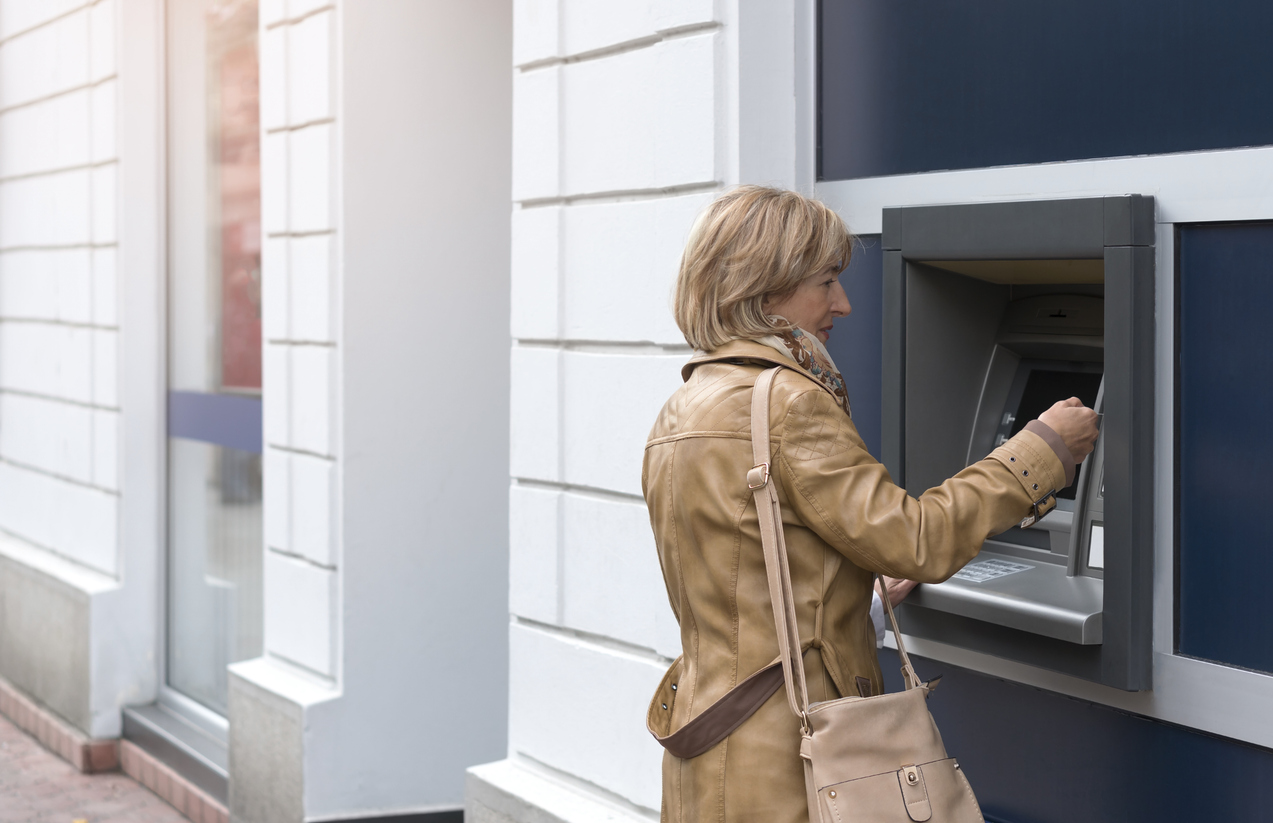Identity Theft Prevention: How to know if someone is stealing your identity
Updated August 30, 2024 | Published October 2, 2023 by Angela Talbot
-
Categories:
- Security & Fraud Prevention

Identity theft can be detrimental to your finances or credit. It can take you years to recover. That’s why it’s important to pay attention to warning signs. There are some things you should watch out for that might indicate someone else is using your identity.
How to know if someone has stolen your identity
1. Unrecognized transactions in your bank account
Use online banking to monitor your debit and credit card transactions every day. If you see a transaction or purchase you didn’t make, immediately contact your financial institution to have your card turned off and get a new one issued. If the fraudulent transaction is through ACH, you should close your account and open a new one with an account number that isn’t compromised. Our debit Mastercards® come with Zero Liability† protection, meaning we won’t hold you responsible for unauthorized transactions.
2. Unfamiliar inquiries or new lines of credit on your credit report
Keep an eye on your credit report because fraud can ruin your credit score, which can be extremely hard to repair. You can get a free copy of your credit report once a year from www.annualcreditreport.com to check it. All the major credit bureaus also offer ways to obtain your credit report and even offer services that will send you alerts when there are major changes to your report.
3. Missing mail or statements
If your regular bills, statements, or other important mail suddenly stop arriving, it could indicate that someone has changed your address to intercept sensitive information.
4. Notifications from debt collectors
If you start receiving calls or notices about debt you weren’t aware you had, someone might have used your identity to rack up debt under your name.
5. Receiving unexpected tax refunds
Identity thieves may file fraudulent tax returns to claim refunds in your name. If you receive a tax refund you weren’t expecting, it could be a red flag.
What to do if you realize your identity was stolen
Contact Credit Bureaus
Inform the major credit bureaus (Equifax, Experian, and TransUnion) about the potential identity theft. Request a fraud alert or a credit freeze to protect your credit.
Report to Law Enforcement
File a report with your local law enforcement agency and provide them with all relevant information about the identity theft. Also report it to the Federal Trade Commission at their site identitytheft.gov. Visit ftc.gov/idtheft for more resources.
Contact Financial Institutions
If you find unauthorized transactions or accounts, notify the involved financial institutions immediately. At Webster First, our debit cards come with complimentary fraud monitoring services through our Card Alert Notification Program. So if we notice a suspicious transaction, we’ll be the first to notify you.
Update Passwords
Change passwords for your online accounts, especially for sensitive ones like banking, email, and social media.
How to prevent identity theft
Be Wary of What You Post on Social Media
Just about everyone is on social media and the things you post online can live forever. Even if you delete a post, you don’t know who might’ve saved it in a screenshot. If any answers to your private account security questions can be found on your social media profiles (like “What is your pet’s name? Where did you graduate high school? Etc.) you are opening yourself up to the danger of identity theft. Our advice is to keep information like that off of your profiles entirely.
Consider Identity Theft Protection
Consider enrolling in an identity theft protection service that can help you detect and respond to potential identity theft incidents. Webster First members can enroll in Mastercard’s ID Theft Protection™ program at no additional charge.
Take action immediately if you lose your wallet
Cancel all cards that were in your wallet as soon as you know it’s missing. Never carry your social security card in your wallet. Someone can use your social security number to get government benefits, get licenses or passports, file a tax return, take out loans/credit cards, or get a job using your name. It’s best to keep your social security card locked up in a safe place where you can’t lose it.
Shred important documents
Any personal identifying information on paper should be shredded before you throw it in the garbage. You never know who might get their hands on it after it leaves your property.
Beware of phishing and phone scams
Phishing scams are an easy way for identity thieves to get your information because you will offer it to them, thinking they are trustworthy. Phishing is when scammers get you to click on what you think is a trustworthy link (either in an email, on a webpage, or in a text message) that can install malware on your device. Or the link might lead you to a form asking you to type in your information so they can steal and use it. See our list of phone scams to see how scammers might try to trick you on a phone call.
Use strong passwords and use multi-factor authentication
Multi-factor authentication is an extra step for password protection that you’ve probably seen before. When you log into your account, there will be a verification code sent to either your personal email or phone so that they know it’s you. If a scammer was able to answer your security questions, they will be stopped at this step because the code won’t go to them. If you receive a verification code when you were not trying to log into one of your accounts, you should change your password immediately.
†Zero Liability does not apply to the following Mastercard payment cards: commercial cards, or unregistered prepaid cards, such as gift cards.